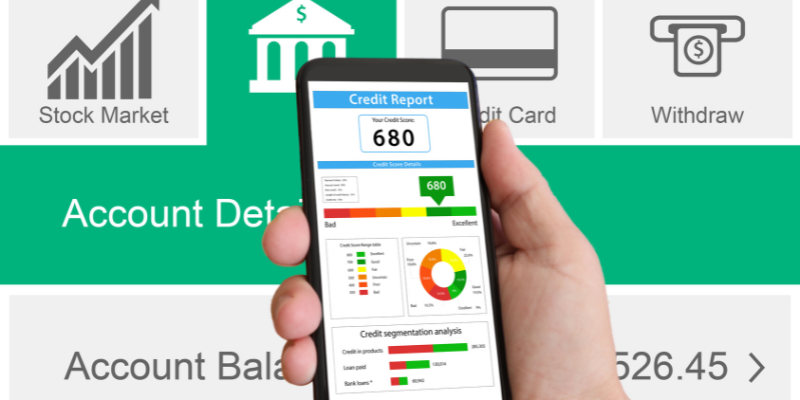The good news is that restoring your credit score after such an error doesn’t have to be difficult, and you can do it without the help of credit repair companies or paying someone to manipulate your scores in any way. There are several steps you can take yourself to quickly restore your credit score and get it back up where it belongs. Here are some tips on how to fix your credit score after a bank error messed up your report and caused your score to drop.

1: Don't Touch the Money
You may be tempted to dip into that emergency fund, but if you’re trying to fix your credit score or rebuild your financial health after any type of setback, don’t touch your cash. The fastest way for you to build up savings is with automatic transfers from your checking into a savings account. You can do so through something like an app like Digit or Mint that will transfer small amounts of money throughout the month. In time, those small amounts add up and you’ll have a cushion for future emergencies. If you do need to access your funds, make sure to pay yourself back as quickly as possible and try not to use them again until they’ve been replenished.
2: Check Your Credit Report

It’s unlikely your credit score will be restored with a simple call to the company that runs your report. Instead, you’ll need to dispute both accounts with Equifax and TransUnion. You can do so online or over the phone; make sure you keep good notes on who you spoke with at each agency, what they said, and when. Once you file a dispute, both agencies have 30 days to respond. If they find it in your favor, your information should get removed from their respective databases almost immediately but there are no guarantees of quick action or resolution.
3: Figure Out What Went Wrong
Sometimes mistakes are made and they’re difficult to track down. But you can use a mistake in your favor by figuring out where it happened, what caused it, and how you can fix your credit score. If you believe that a bank error has impacted your credit score negatively, then look at when things were done incorrectly and when these things have an impact on your score. In other words, figure out if there is something systemic about a big mistake that happened or if each time was its little episode. If you discover there is some kind of system error or even an unwritten policy, file an official complaint with your bank.
4: Contact Your Bank
Before you do anything, call your bank and let them know there’s been a mistake. A representative should be able to remove at least one of your accounts from your credit report. It’s wise to keep an eye on your report regularly by free copies every few months. You should also make sure that information regarding mortgage applications, student loans, and other major obligations is accurate. And while you’re at it, review all of your automatic payments so that money isn’t accidentally spent on debts you don’t owe. While mistakes can happen in any industry, banks are required by law to fix their mistakes quickly so don’t be afraid to ask for help!

5: Fix the Mistake with Reassurances from Them
Before you do anything, check to see that you did not open two accounts. Contact your financial institution and inquire about a second account; if they tell you that you’re mistaken and there is only one, you may have been taken advantage of by identity theft. In any case, you should report fraud to your financial institution and ask for instructions on removing fraudulent transactions from your credit history. If there are separate accounts with duplicated transactions, which is what happened to me you’ll want a written explanation from your bank statement of which transactions belong on which accounts so they can be removed from both of them.
6: Keep Track of Your Financial Health

It’s easy for financial situations and balances to become a bit of a blur, especially if you use more than one financial institution. If you can stay on top of your finances, small mistakes or errors can be avoided before they affect your overall financial health. One way to keep track of your situation is by using online tools that integrate with multiple banks and aggregates all of your information into one place. It’s also a good idea to keep copies of all of your statements in an electronic format so if something does happen and someone asks for proof, you can simply send them a link to where they can access them at any time.
7: You Closed a Credit Card Account
But Never Received a Letter from Your Credit Card Company? Don’t Panic. You might just be in for some good news. According to my FICO, one of two major credit bureaus, roughly 20 percent of all consumers have an active credit card that does not appear on their reports due to a variety of reasons. It could be because you haven’t used your card since you opened it or maybe because your issuer hasn’t yet sent updated information to Experian and TransUnion (the two agencies that collect and distribute data on your financial history) after you cancelled an old card and opened a new one.




